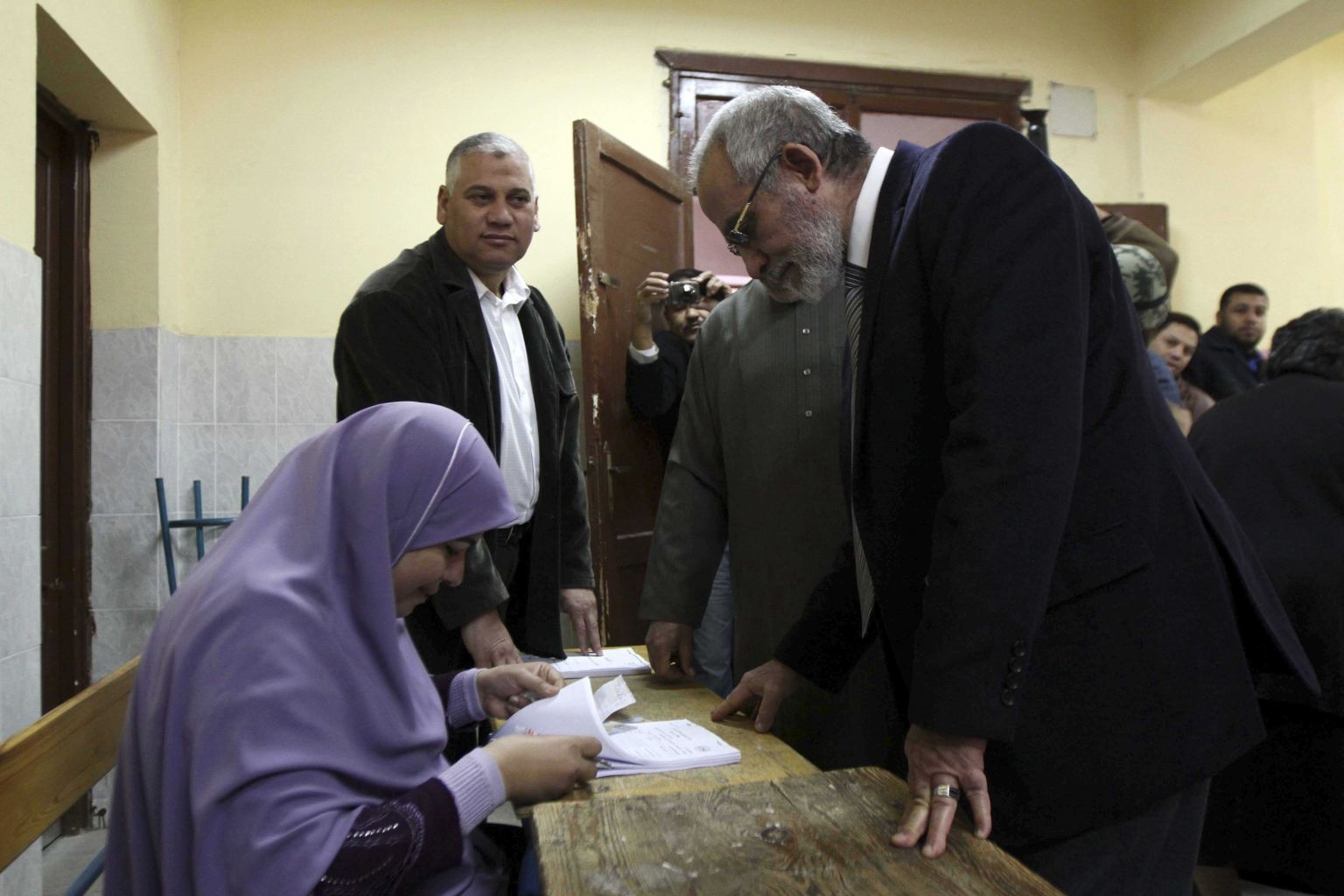
Mohammed Badie, the murshid (guide, leader) of the Egyptian Muslim Brotherhood, looks on while his name is checked on a voters list in a polling station in Beni Sueif, some 110 km south of Cairo (Reuters).
A victory in the second phase of the constitutional referendum will give a boost to Islamists, who believe the new constitution will pave the way for a smooth and swift transition to democracy under President Mohamed Morsi.
The Nile Delta Menoufiya Governorate, which during the presidential elections in June voted for former Prime minister Ahmed Shafiq, marginally opposed the constitution in the second phase of the referendum, joining Cairo and Gharbiya, who voted the document down in last week's first phase. Particularly in the first round many complaints were laid down, about irregularities like names of deceased people on voting lists, polling stations that that were not supervised by judges or people present at the polling stations (mainly of the Muslim Brotherhood) who tried to influence voters.
Hours before polls closed, Vice President Mahmoud Mekky announced his resignation. He said he wanted to quit last month but stayed on to help Mursi tackle the crisis that blew up when the Islamist leader assumed wide powers. Mekky, a prominent judge who said he was uncomfortable in politics, disclosed earlier he had not been informed of Mursi's power grab. The timing of his resignation appeared linked to the lack of a vice-presidential post under the draft constitution.
The oppositional National Salvation Front announced that it will hold a news conference on Sunday
to announce its stance and outline its plans for the coming period. The NSF was founded by prominent political
figures Mohamed ElBaradei, Amr Moussa and Hamdeen Sabbahi. The Muslim Brotherhood thinks that the new constitution, which pave the way for new elections for the maglis as-shaab (lower house of parliament) and will help to restore stability to the country. The opposition, however, maintains that the new constitution splits the country, as it neglects the rights of Christians, women, workers and farmers among others and contains many other contentious articles concerning the power of the president and the role of the military and the judiciary, among others.
Meanwhile President Morsi appointed 90
members to the Shura Council, the upper house of parliament,
Presidential Spokesperson Yasser Ali announced on his official Facebook
page on Saturday. The appointments include senior Muslim Brotherhood
leaders such as Essam al-Erian and Sobhy Saleh and military figures such
as Adel Morsi, the former head of the Military Judiciary Authority. According to Ali, the 90 appointees
include members of 17 parties, 12 of which did not have any
representation in the dissolved People's Assembly. Appointees also
include constitutional experts, eight women, 12 Copts, eight members of
Egyptian churches, five members of Al-Azhar and two of the wounded of
the revolution.

.jpg)


No comments:
Post a Comment